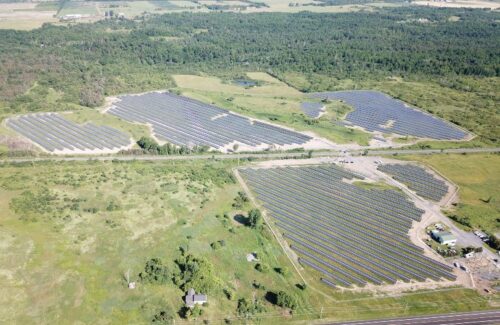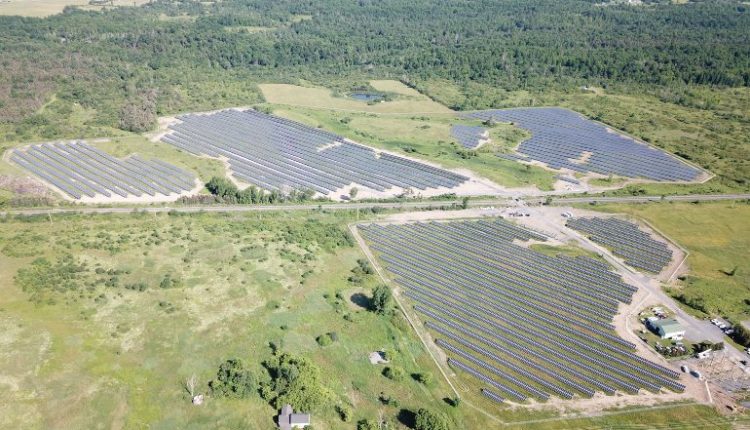Gov. Hochul unveils $1 billion proposal to combat climate crisis in New York

A solar project in New York by Standard Solar.
Governor Kathy Hochul announced plans to invest more than $1 billion to tackle the climate crisis and achieve a more sustainable and affordable future as part of her 2025 State of the State. This ambitious proposal would be the largest climate investment in the history of the United States. state, generate thousands of jobs, reduce household energy bills and reduce harmful pollution. This announcement demonstrates New York State’s continued commitment to deploying renewable energy, advancing clean transportation and decarbonizing the economy, and exploring emerging technologies that can support decarbonization goals and economic development.
“Today we are taking a monumental step toward a greener, more affordable future for New York State,” said Governor Hochul. “This historic $1 billion climate investment is not just a commitment to sustainable energy, it’s a commitment to New Yorkers – creating thousands of jobs, reducing energy costs and reducing harmful pollution. Together we will move forward with innovative technologies to achieve our decarbonization goals while ensuring economic growth.”
With 2024 the hottest year on record, Governor Hochul knows that tackling climate change is both a moral imperative and a huge economic opportunity. Her State of the State 2025 tackles climate change head-on through record investments, a commitment to research nuclear energy technologies and efforts to decarbonize government agencies and college campuses.
Give the green light to climate ambition
Governor Hochul directs the state to embark on the largest climate investment program in state budget history, with more than $1 billion in new spending dedicated to achieving a more sustainable future. This groundbreaking investment will create good-paying jobs, improve long-term affordability and reduce harmful pollution and its impact on our families.
Governor Hochul’s investment will extend across several sectors of our economy and across the state’s geography by:
- Renovate homes and encourage the installation of heat pumps.
- Ensuring public infrastructure can serve as hubs of sustainability, including building out thermal energy networks on SUNY campuses that can provide a path to next-generation energy infrastructure.
- Expanding green transportation options across the state and supporting businesses of all sizes on their journey to a low-carbon economy.
Additionally, the Department of Environmental Conservation (DEC) and the New York State Energy Research and Development Authority (NYSERDA) will continue their work in the coming months as New York moves forward with implementation of the cap-and-invest program, including proposing new reporting rules to collect information on emission sources. This will create more space and time for greater involvement and public input, while also working on other implementing regulations and the program’s investment plan.
Public power for public entities and job creation in the Clean Energy Union
Governor Hochul will direct state agencies and the New York Power Authority to enter into contracts with the goal of achieving 100% renewable energy for state agencies by 2030, consistent with Executive Order 22. These contracts will result in at least 500 MW of renewable energy, while creating clean energy development, 9,000 union jobs and reduced emissions.
Decarbonizing New York’s SUNY and CUNY campuses
Recognizing the critical role of New York’s higher education institutions in achieving the state’s climate goals, Governor Hochul plans to decarbonize campuses in the SUNY and CUNY systems. Leveraging the Environmental Bond Act investments, Governor Hochul will direct SUNY and CUNY to begin electrifying campuses and integrating renewable energy technologies.
This effort includes the adoption of advanced thermal energy networks and other transformative clean energy systems. These upgrades will significantly reduce emissions, improve campus sustainability and create healthier, more resilient learning environments for students, faculty and staff.
News release from NYSERDA



Comments are closed.